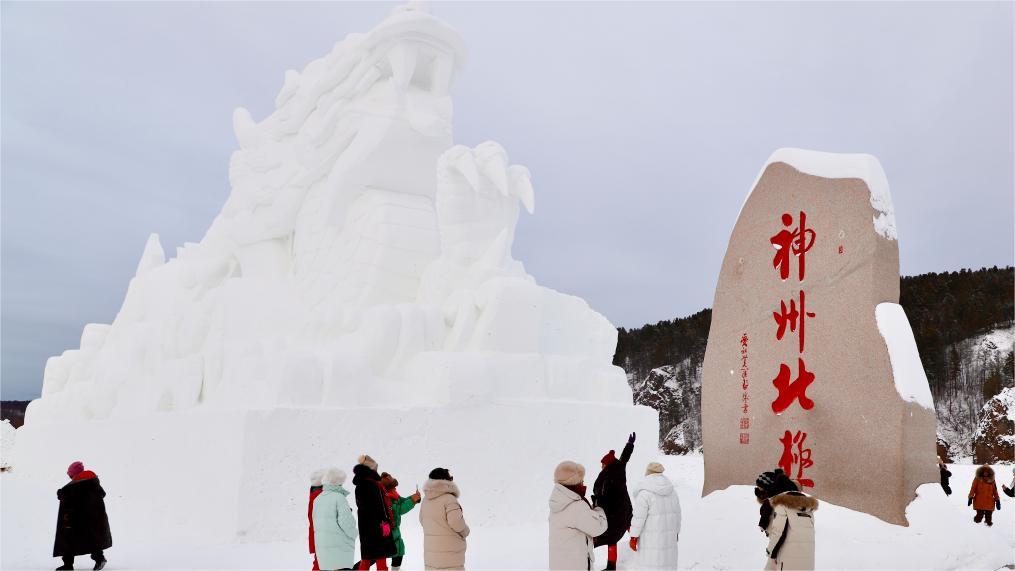Japan's security strategy moving on dangerous path
TOKYO, Dec. 26 (Xinhua) -- The Japanese government last week adopted a draft budget of 112.07 trillion yen (about 787 billion U.S. dollars) for fiscal year 2024, with defense spending hitting an all-time high and increasing for the 12th consecutive year.
In another controversial move, the government revised Three Principles on Transfer of Defense Equipment and Technology and its implementation guidelines without any debate in parliament, throwing open the door for exports of ballistic missiles and other weapons.
Analysts believe that whether it is the increase in the defense budget over the years or the lifting of the ban on lethal weapons exports, it has exceeded Japan's own defense needs and is a dangerous move that violates Japan's pacifist postwar Constitution, which will aggravate regional unrest and raise concerns in the international community.
INCREASED DEFENSE SPENDING
Fiscal 2024 marks the second fiscal year since Prime Minister Fumio Kishida's government approved revisions to three security and defense-related documents, including the National Security Strategy, for large-scale military expansion.
The 7.95 trillion-yen defense budget for fiscal 2024 adopted on Dec. 22 saw a jump of more than 16 percent from the previous record-high of 6.8 trillion yen in the current fiscal 2023. The spending plan aligns with the government's military buildup program to pour in a combined 43 trillion yen to defense outlays from fiscal 2023 through 2027.
Japanese newspaper Asahi Shimbun said on Saturday in a commentary that such a large-scale budget has completely exceeded its own needs and is in an inflated state, raising the question of whether it is sustainable for the government to focus on building a defense force beyond its capabilities, rather than on whether it has stable financial support.
To finance higher defense spending, the Kishida government had previously decided to implement tax hikes, which was widely opposed by the public, and it was forced to announce a delay in the measure.
Relying on the issuance of government bonds to supplement defense expenses may become the Japanese government's choice, analysts said.
According to public broadcaster NHK, in the 112-trillion-yen draft budget for fiscal 2024, a record 27 trillion yen has been earmarked for debt-servicing, which means about a quarter of all spending will go to paying off existing debt.
Some analysts said the Japanese government is living beyond its means. The high defense cost will inevitably divert financial resources away from areas related to people's livelihoods, negatively impacting the lives of the Japanese people.
Atsushi Koketsu, emeritus professor at Yamaguchi University of Japan, pointed out that with such a large defense budget, it can only be said that Japan has completely denied the "unarmed neutrality" pursued by the pacifist Constitution, and militarism has replaced pacifism as the top of the list. This approach can only aggravate the distrust and vigilance of Asian countries towards Japan.
RELAXING ARMS EXPORTS
Also on Dec. 22, the Japanese government revised Three Principles on Transfer of Defense Equipment and Technology and its implementation guidelines, with a decision to provide its home-made Patriot air defense missiles to the United States. It is the first time that Japan has allowed the export of destruction weapons since its government adopted the Three Principles in 2014.
Under the revision, the government allows weapons made in Japan under foreign license, including completed products and components, to be shipped to the country that the licenser is based. The licensing nation will be allowed to re-export weapons to a third country upon Japan's prior consent, except "nations where combat is deemed to be actually taking place."
The Kishida administration has thrown open the door for exports of completed lethal weapons, Asahi Shimbun said in an editorial published on Sunday.
Decisions to ease regulations on arms exports have practically been made in closed-door talks by a small number of working-level officials from the ruling parties, said the editorial, noting that "No discussions on the matter have been held in an open arena, including in the Diet. A broad-based public consensus could never be obtained with such an approach."
Following the revision, Japan quickly decided on the day to provide the United States with Patriot surface-to-air guided missiles produced domestically, licensed by U.S. firms.
Although the Japanese government has emphasized that licensing countries cannot export Japanese-made weapons to third countries where fighting is ongoing, local experts and the media have expressed serious concerns about Japan's involvement in international conflicts.
Miho Aoi, professor of law at Gakushuin University in Japan, said that Japan's pacifist Constitution advocates pacifism and does not encourage international disputes, but this revision goes against the spirit of the Constitution.
Professor Hideki Uemura of Ryutsu Keizai University, who specializes in security policy, said that the direct consequence of this major revision is to turn Japanese companies into arsenals that support U.S. defense policies.
BREAKING SECURITY TABOOS
Since the end of World War II, right-wing forces in Japan have never given up their dreams of making Japan "a political power" and "a military power."
But war-renouncing Article 9 of the Japanese Constitution has kept them at bay with one clause stipulating that the country would "forever renounce war as a sovereign right of the nation and the threat or use of force as means of settling international disputes," resulting in the nation's exclusively defense-oriented policy.
In recent years, however, Japan has continued to defy the spirit of the pacifist Constitution by pushing the limits.
Former Prime Minister Shinzo Abe's government revised the three principles on arms exports, lifted the ban on collective self-defense, passed multiple security-related bills, and built defense capabilities covering space force and cyberspace, which to a large extent weakened the restrictions on military activities imposed by Japan's pacifist Constitution.
Since the end of last year, the Kishida government has broken a number of taboos by effectively ignoring the pacifist Constitution and lifting military bans.
Analysts pointed out that these moves of "new militarism" have not only triggered concern among the Japanese people, but also brought destabilizing factors to regional peace, leading to increasing vigilance and concern among Asian countries and even in the international community about Japan's future development direction.
Atsushi Koketsu said that Japan is significantly increasing its defense expenditure, expanding weapons production and exports, and strengthening the Japan-U.S. military alliance. Japan's serial actions indicate that it is embarking on a dangerous path. (1 U.S. dollar equals about 142.3 Japanese yen)
Photos
Related Stories
- Okinawa rejects court order over revised U.S. base transfer plan
- Japanese gov't relaxes ban on arms exports amid criticism
- Japan PM Kishida replaces 2 top executives in scandal-hit ruling LDP
- Japan's court orders Okinawa governor to approve design change for U.S. base relocation
- Japanese automaker Daihatsu to halt all model shipments amid test scandal
Copyright © 2023 People's Daily Online. All Rights Reserved.









